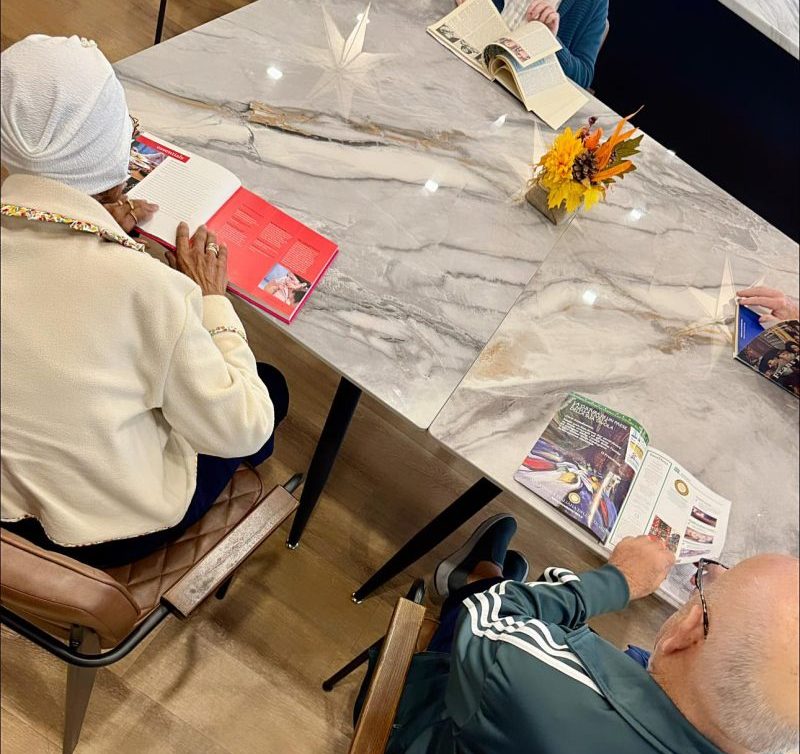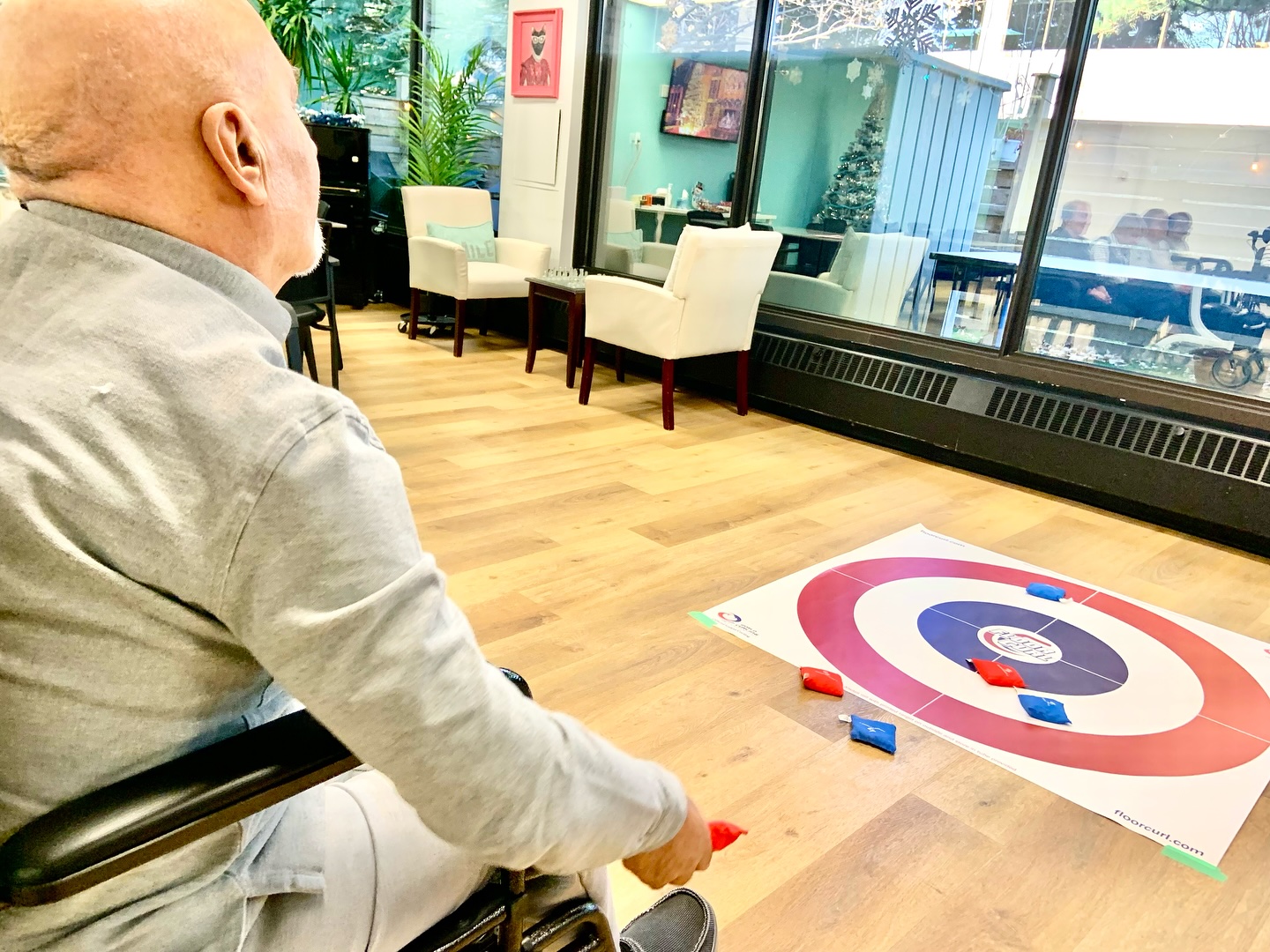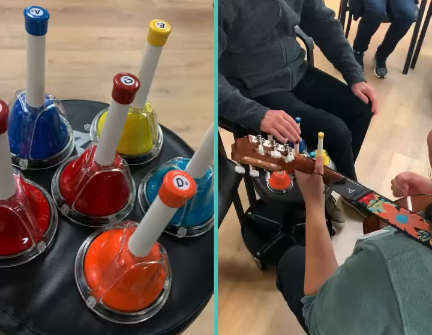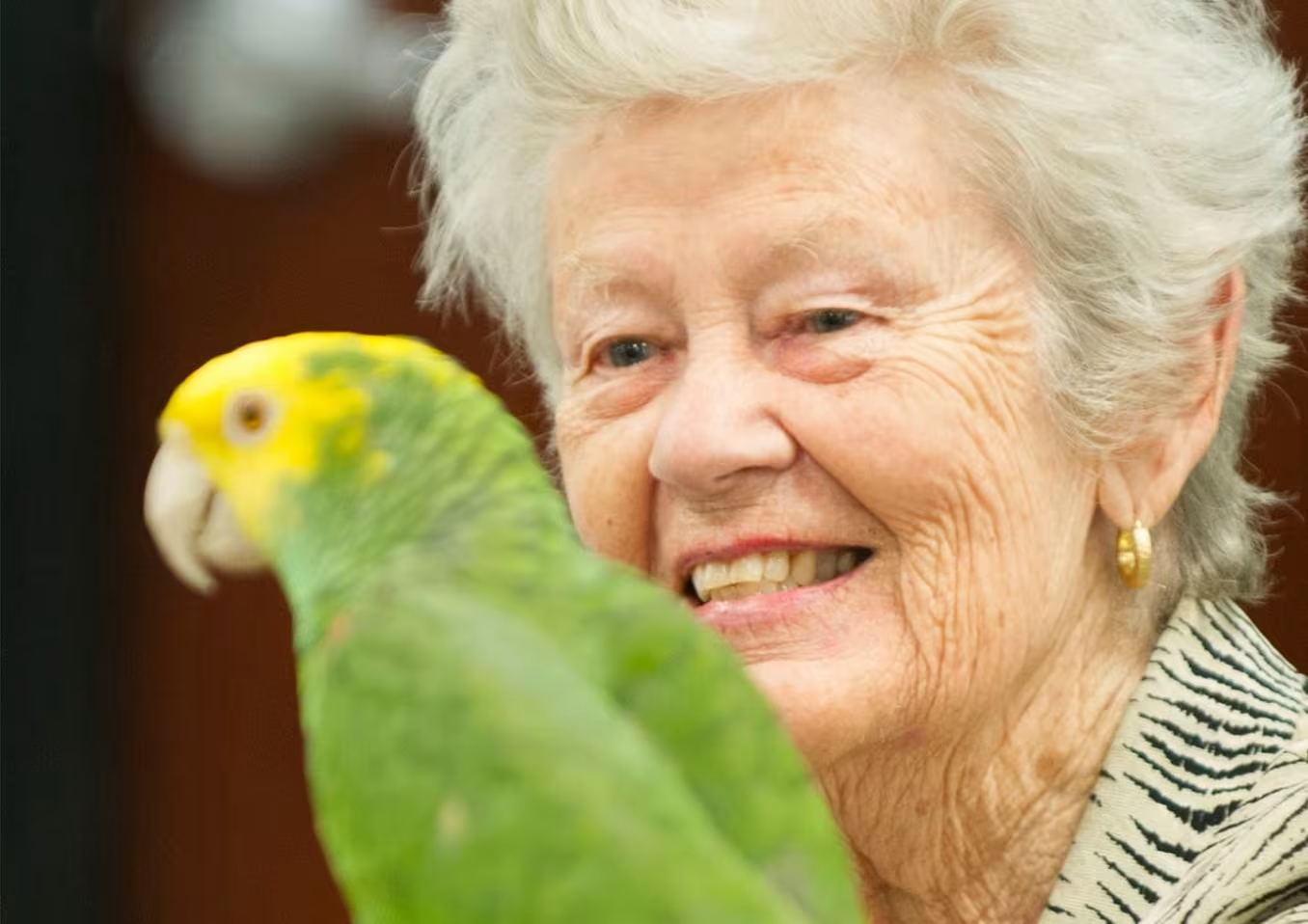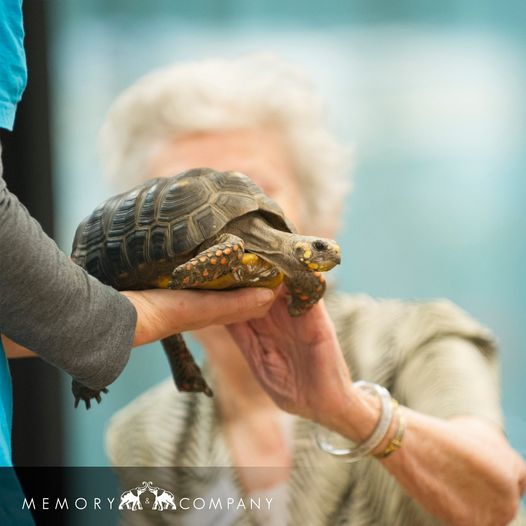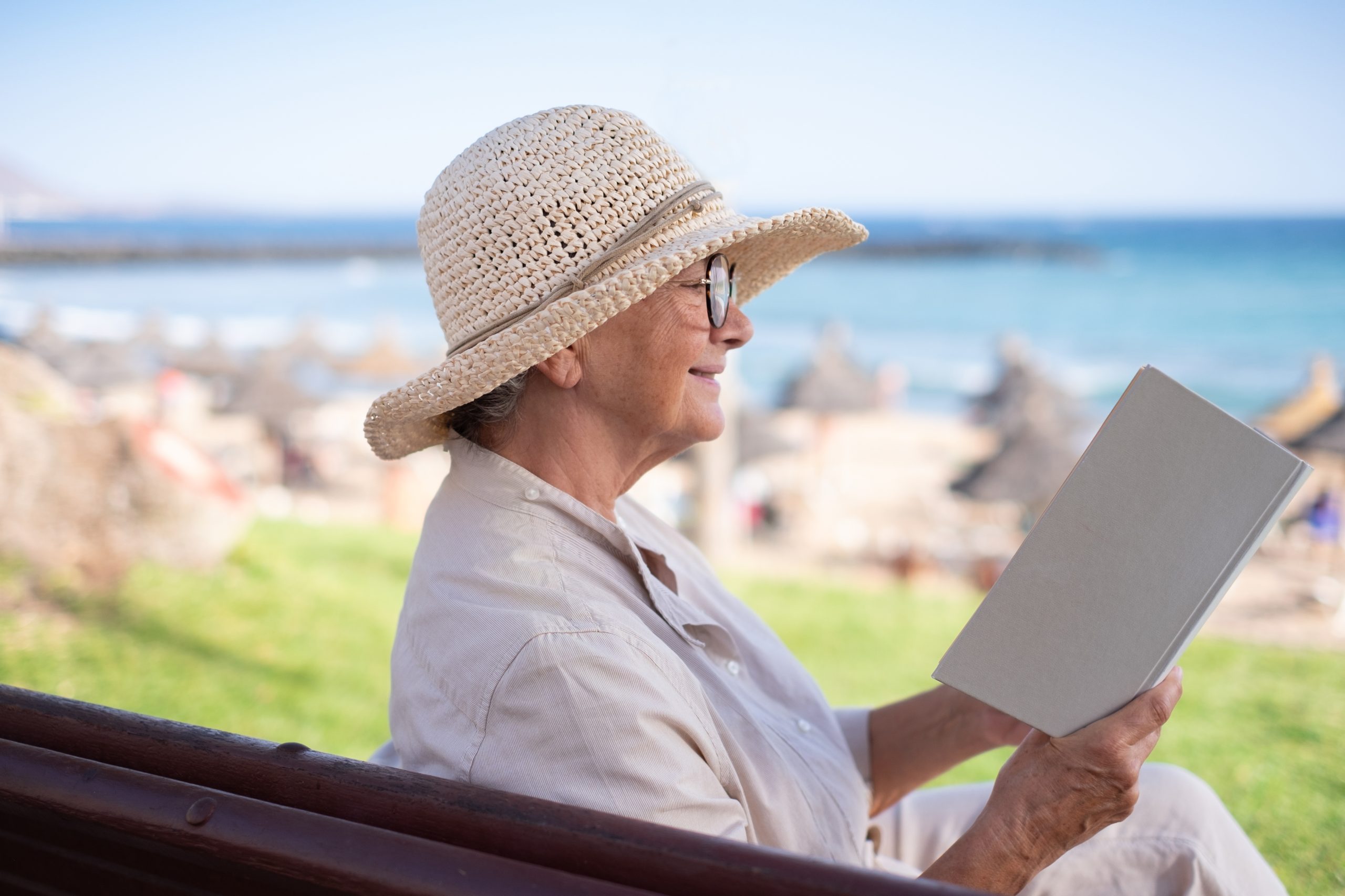While the snowy season can be magical for some, it can also bring challenges for individuals who require Memory Care.
Reduced mobility, heightened risks of isolation, and cognitive shifts that often occur during colder months can create unique hurdles for care partners and Memory Care environments. Add in stormy cold days and nights, and winter can be a distressing time for millions of Canadians living with dementia. Short-term and long-term Memory Care settings are designed to provide safe and supportive winter experiences. However, supporting seniors who are living with Memory Loss during winter may require extra creativity.
By keeping comfort, joy, and safety at the forefront, winter activities can be an opportunity to nurture emotional connections rather than focusing on physical or strenuous tasks. Winter activities can be tailored to the specific physical, mental, emotional, and social needs of individuals living with Memory Loss, further enhancing their quality of life. Below, we explore gentle yet impactful activities and tips for providing care that prioritizes emotional well-being.
Sensory-Focused Engagement
A key component of dementia care in the winter is to provide gentle, sensory-focused activities that not only brighten winter days but also offer comfort. For instance, items such as fleece, cotton, or silk can provide soft texture exploration, as can gentle plant touching using soft moss or succulents under supervision. Sensory boxes filled with familiar winter items like pinecones, cinnamon sticks, or smooth stones are also great for person-centred dementia care.
It is important to always prioritize safety and comfort by using lightweight, non-hazardous materials. Since Memory Loss can lead to a range of cognitive and mobile limitations, constant supervision for sensory-focused activities is recommended.
Simplified Creative Experiences
Arts and crafts help to occupy the time on cold winter days when physical limitations make outdoor exploration difficult. With tailored modifications, these activities can provide cognitive stimulation, social interaction, and a sense of purpose. By focusing on the process rather than the outcome, individuals living with Memory Loss explore creativity without pressure.
Activities such as card creation, drawing, scrapbooking, knitting, pottery, jigsaw puzzles, and colouring can be done with guidance when needed. By using easy-to-hold and easy-to-use materials and tools, a person living with limited mobility can exercise their fine motor skills. Remember to offer one-step-at-a-time instructions to avoid overwhelming participants and celebrate effort when possible.
Reminiscence and Memory Connection
A popular Memory Care winter activity is to use pictures, videos, and familiar objects to stimulate memories through conversation. Looking at old winter photographs, such as family gatherings or snowy landscapes, and sharing stories about memorable winter moments, like childhood snow days or holiday traditions, is a great way to evoke smiles, emotional engagement, and cognitive stimulation. Using gentle conversation techniques without pushing for specific memory recall allows the natural flow of memory-sharing and creates a positive atmosphere. Try to incorporate classic board games, trivia games, and winter decorations to stimulate topics of interest.
Music and Auditory Comfort
Music is a timeless tool to soothe the soul and foster connection, which is why music therapy has become a staple in Memory Care therapeutic programs. Studies have shown that familiar melodies or calming sounds can inspire joy and provide an emotional uplift during the wintertime. Singing is a way to lift the spirit and engage in social settings. People living with Memory Loss can enjoy music whether standing or sitting, by clapping their hands, tapping their feet, dancing, or just swaying their heads. Playing soft background music from the individual’s younger years and introducing instrumental winter melodies create a cozy atmosphere. Try to select familiar tunes that bring comfort and resonance.
Gentle Movement and Comfort
Keeping the body active—albeit gently—can support circulation and physical well-being during the colder months while boosting mood. In fact, spending 10-15 minutes being “active” each day can improve flexibility, balance, coordination, and muscle tone. These benefits can also reduce anxiety and feelings of isolation while encouraging social interaction. For seniors with reduced mobility, seated activities provide a safe, effective option for maintaining light physical movement. Try seated stretching exercises to improve flexibility and comfort, gentle hand and arm movements to maintain circulation, and breathing relaxation techniques to reduce tension and promote calmness. Always ensure trained professionals lead activities to maintain safe practices.
Sensory Comfort Experiences
Dementia can cause sensory impairments, impacting visual, auditory, and tactile performance and perception. The extremely cold temperatures in the winter only enhance these limitations. However, winter-specific sensory experiences can nurture a sense of emotional security and physical comfort, further fostering well-being. Providing soft, weighted blankets and warm hand massages with gentle pressure and lotion can evoke warmth and calmness. Incorporating safe, controlled aromatherapy with soothing winter scents like vanilla or pine is also beneficial. For Memory Care settings that feature an indoor pool, being in the water can help reduce anxiety and boost mood. Use trial and error to find out which items and practices create the most joy.
Get Compassionate Winter Care at Memory & Company
Every individual living with Memory Loss experiences the world uniquely. By focusing on their emotional well-being and tailoring activities to their needs, we can ensure winter is filled with opportunities for connection, comfort, and joy.At Memory & Company, we prioritize the safety and emotional comfort of each Member and strive to provide individual experiences that enhance your loved one’s quality of life. Our Respite Care and Premium Day Program are tailored to the specific needs and preferences of our Members. Both our Markham and Oakville Clubs offer short- and long-term dementia care with resources for care partners.
Contact us today to learn more about our VIP services and Respite Hotel service.








